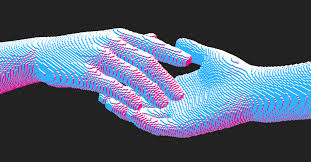California lawmakers have introduced a groundbreaking bill to regulate the use of artificial intelligence (AI) in therapy, following concerns over AI programs impersonating licensed mental health professionals. The proposed legislation, if passed, would prohibit AI systems from providing therapy without proper disclosures and oversight, marking a significant step in addressing ethical concerns in mental health technology.
Growing Concerns Over AI in Therapy
The rise of AI-driven therapy chatbots has sparked controversy as more people turn to digital solutions for mental health support. While AI-powered mental health apps and chatbots claim to offer emotional guidance, some have been found to impersonate licensed professionals, misleading users into believing they are speaking with human therapists. This practice has raised ethical concerns, particularly regarding user safety, data privacy, and the effectiveness of AI-driven therapy.
A 2023 report from the California Department of Consumer Affairs highlighted cases where AI chatbots provided inaccurate or potentially harmful mental health advice. The report emphasized that AI lacks the ability to offer nuanced, human-centered care, which is crucial for mental health treatment.
The Proposed Legislation: Key Points
The California bill, introduced by state lawmakers in early 2025, aims to:
- Ban AI from impersonating licensed therapists – AI chatbots would be prohibited from presenting themselves as human professionals.
- Require clear disclosures – Companies must inform users when they are interacting with AI rather than a licensed therapist.
- Implement stricter data regulations – AI mental health platforms would be subject to strict rules on storing and handling sensitive user data.
- Establish oversight – The California Board of Behavioral Sciences would be responsible for monitoring AI-driven mental health tools.
If enacted, the law would impose fines and potential shutdowns for companies that fail to comply.
Industry Response and Ethical Implications
Tech companies developing AI therapy tools have expressed concerns about the bill, arguing that AI can provide valuable support, particularly for individuals who lack access to traditional therapy. Some companies advocate for a middle-ground approach, where AI is used as an adjunct to human therapists rather than a replacement.
Mental health experts, however, stress that while AI can be helpful for basic emotional support, it cannot replace trained professionals in complex cases. Dr. Lisa Martinez, a licensed clinical psychologist in California, warns that “AI lacks the ability to recognize subtle emotional cues and tailor treatment to an individual’s unique needs. Relying on AI for therapy could lead to serious risks, especially for individuals with severe mental health conditions.”
Public Reactions and Future Outlook
The bill has received mixed reactions from the public. Many mental health advocates support the regulation, emphasizing the need for ethical AI use in therapy. However, some argue that banning AI therapy outright could limit access to mental health support for those who cannot afford traditional services.
As AI continues to evolve, California’s legislation could set a precedent for other states and countries considering similar regulations. The debate underscores the ongoing challenge of balancing technological innovation with ethical responsibility in healthcare.
With lawmakers set to debate the bill in the coming months, the future of AI-driven therapy remains uncertain. However, one thing is clear: the conversation around AI and mental health is far from over.
Disclaimer – Our team has carefully fact-checked this article to make sure it’s accurate and free from any misinformation. We’re dedicated to keeping our content honest and reliable for our readers.








